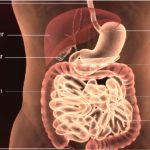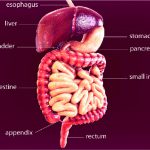Gallbladder cancer as the name suggests, begins in the gallbladder, an organ that stores a substance called bile. To read about gallbladder and gallbladder cancer, click here
What is chemotherapy?
Chemotherapy is a treatment that use drugs to treat cancer. The drugs used in the treatment are prescribed based in a number of factors like stage and type of cancer, tolerance levels and the general health of the patient. These drugs aim at killing the malignant cells in the body. To read about the common drugs used in chemotherapy, click here.
Side effects of chemotherapy in gallbladder cancer treatment:
During this procedure, these drugs kill the healthy cells also, which can lead to a lot of side effects. These side effects vary from individual to individual. Following are the side effects a person could experience post chemotherapy for gallbladder cancer:
Change in taste:
During and after taking chemotherapeutic drugs, patients experience a change in taste of food. Food might taste bland or metallic.
Constipation:
The drugs can cause constipation and pain. Diet changes during and after chemotherapy for gallbladder cancer can be a cause for the condition.
Diarrhea:
There is a direct affect on the intestinal cells when chemotherapeutic drugs are prescribed for treating gallbladder cancer. This leads to a disturbance in the stomach.
Nausea and Vomiting:
Chemotherapy for gallbladder cancer cause dizziness and drowsiness during and after the treatment. In a few cases, this weakness can lead to vomiting.
Fatigue:
Chemotherapeutic drugs can cause a lot of weakness and feeling of tiredness during and after treatment.
Skin problems:
These drugs damage the skin extensively. Patients who are given chemotherapeutic drugs often experience skin peeling, dryness and itching during and after the treatment.
Hair loss:
The dosage of the chemotherapy and the drugs will determine the damage of the hair follicles. Hair loss generally begins in the first two weeks if the first cycle, and continues until the patient is completely recovered.
Lowered white blood cell count:
White blood cells are responsible for the body’s immunity against infections and diseases. During the killing of cancerous cells, the healthy cells are also killed which includes the white blood cells too. This makes the person prone to infections as the immunity decreases with lowered white blood cell count.
Lowered red blood cell count:
Damage to the red blood cells leads to anemia, which causes dizziness fatigue, etc. This weakness often lasts after treatment also.
Lowered blood platelet count:
Less number of platelets can cause difficulty in blood clotting. It also leads to easy bleeding and bruising.
Effect on kidneys:
Chemotherapeutic drugs affect the kidneys too, causing disturbances in filtering waste out the body which in turn causes renal failure.
Loss of appetite:
The drugs change the appetite of the patient. They lose their normal appetite and consumption of food decreases which can cause weight loss too.
Nail changes:
Chemotherapeutic drugs often cause inflammation and discoloration in the nail area.
Mouth sores:
Mouth sores on the tongue, lips, gums or in the throat can make it difficult to chew and swallow. This condition is called mucositis. Oral mucositis, a condition of mouth sores on the lips, tongue, gums and throat is a common complication of chemotherapy, which begins a week after initiation of the treatment and lasts upto two weeks. These drugs also cause dry lips.
Neuropathy:
Neuropathy is a common side effect of chemotherapeutic drugs. A condition that causes tingling and numbness of hands and feet, known as neuropathy is a common side effect of chemotherapeutic drugs used for gallbladder cancer.
Heart problems:
Chemotherapeutic drugs can cause abnormalities in the heart rhythm and the blood pressure of the body. This leads to heart problems like expansion of arteries, blocks in the heart and in extreme cases, a heart attack. Abnormalities of the heart rhythm and blood pressure can increase the risk of heart problems and this is caused by the chemotherapeutic drugs used for gallbladder cancer.
Menstruation problems:
Women on chemotherapeutic drugs for gallbladder cancer might experience irregular periods and abnormal bleeding. Since women are at a higher risk of developing gallbladder cancer, menstruation problem is one the major side effects of chemotherapy in gallbladder cancer.
After treatment:
Post treatment care is very important for any disease or treatment, even more so for conditions that can be terminal or have major side effects. Read more about the treatment outcome and post treatment care for gallbladder cancer here




